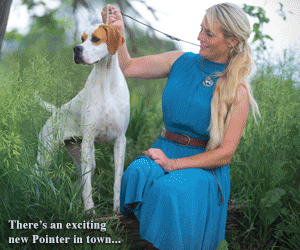From The Publisher

The pervasive nature of social media in the everyday lives of many individuals amazes me. Whether it is Facebook, Twitter, Tumbler, YouTube, Flickr, or any of the hundreds of socially interactive sites available, many people are spending hours every day surfing, chatting, pontificating, and sharing information amongst one another.
Most of the time this type of interaction is a good thing. People learn more about each other and the subjects they are discussing. Sometimes the interaction on these sites is not so positive. People who aren’t experts, but claim that status, write things that just aren’t true. Others claim to be ‘in the know’ and make false statements based on supposition. Yet others simply write slanderous, defamatory remarks.
I have to be honest, I don’t communicate on Facebook. I don’t visit chat rooms. I don’t share my life online. This is not a condemnation of those who do, just a clarification of my behavior when it comes to social media. We have a company Facebook site, Twitter, etc. I view them, read the comments, and check the stats, but that’s the extent of my online interaction. It just doesn’t interest me.
I am interested, however, in the way people in our sport share information, how they learn, and where they get their information regarding breeding, showing, etc. Whereas I garnered most of my knowledge about the sport of purebred dogs from hands-on experience, talking to those I respected, and reading books and magazines, many people in our sport are getting more and more information online? Again, sometimes this is a good thing, but it can also be really, really bad.
Let’s discuss judging for a moment. Let’s talk about how we determine who we would show to again and again. Basically, how do we rate a judge? Good or bad? Knowledgeable or clueless? Honest or dishonest? Good hands or heavy-handed? Nice to exhibitors or not so much? The criteria used to determine the relative merit of a judge is endless.
The one thing we could usually depend on when I showed was that most people would give a judge they didn’t know at least one chance. Our rule was three strikes and you’re out. We felt there was no way to figure out a judge’s skill after showing to them once. The bottom line was we learned on our own and based our judgement on what we experienced, not what we were told by someone else.
That dynamic is changing with the increased use of social media. There are sites with judges ratings systems, personal comments that are made public, and “expert” opinions about judges that may or may not be accurate, unbiased assessments. Many of these sites allow those commenting to hide behind usernames thus allowing them to potentially damage the reputations of good people and good judges simply because they didn’t fare well under them in the ring.
Don’t get me wrong, I am not some dinosaur who thinks we should only communicate using Ma Bell or stone tablets, and that the internet is voodoo. I am just saying that while sharing information is good, you must consider the source. Sometimes the experts on a blog or in a chat room really aren’t experts at all, and maybe, just maybe, your real-life experience is more valuable than any information you can get from the internet.
Short URL: https://caninechronicle.com/?p=30471
Comments are closed











